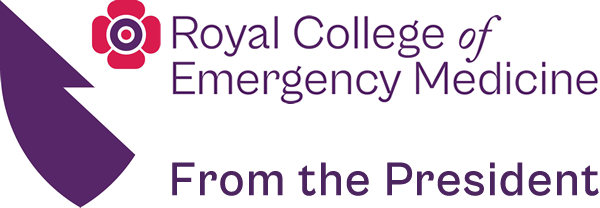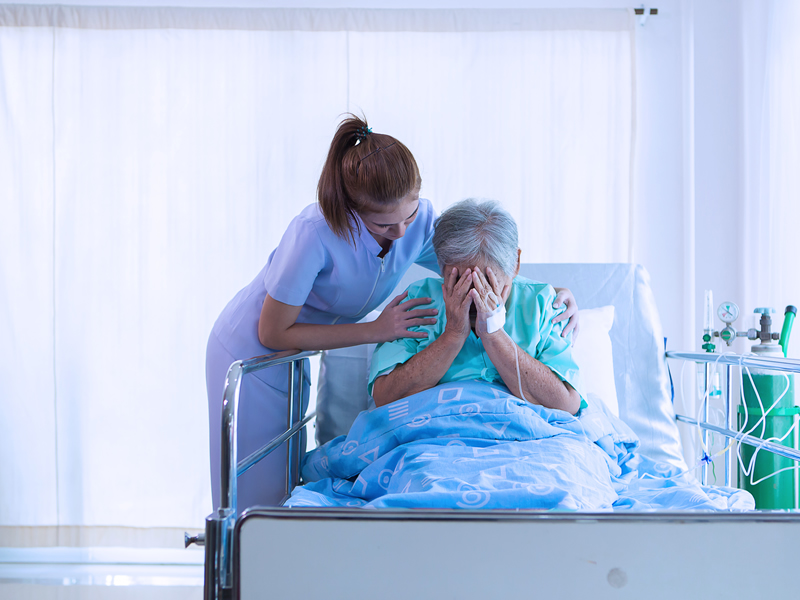In this month’s guest blog Dr Graham Johnson, Consultant Emergency and Paediatric Emergency Medicine at Royal Derby Hospital, discusses his family’s recent experience of receiving care.
Last Thursday I had the pleasure of experiencing the very best of the NHS. My son had an elective orthopaedic procedure at the Robert Jones Agnes Hunt Hospital in Oswestry. We had a spacious, clean bedspace on the ward and were greeted by cheerful, professional, and thorough staff, who paid lots of attention to us both. The anaesthetist arrived shortly after, followed by his surgeon, who spent time discussing the procedure with my son and me. The theatre staff were fantastic with lots of chatting to put my son at ease. His treatment required an overnight stay, I was provided with a parent room on the ward and my son was checked regularly. The next morning we saw a paediatrician and an orthopaedic registrar, before physio to assist with walking, then out of the hospital and on the way home by lunchtime. The whole experience exemplified how good the NHS can be, with excellent nurse:patient ratios, sufficient hospital beds, apparently well-rested and enthusiastic staff, with an achievable amount of work to be accomplished in their day. We cannot speak highly enough of Mr Rob Freeman and his team.The Friday that my son and I left, I was starting my late shift on-call weekend in my emergency department. I arrived at 1800 to find 45 patients waiting to be seen, a woefully understaffed doctor rota (long standing, not just because of covid) and a 23 hour wait for a hospital bed. Our resuscitation area was full. Patients “stacked” outside of cubicles for lack of space and people were falling over each other in the waiting room. It was a struggle to provide safe, prompt and effective care for the most unwell patients. We did manage it, but to the detriment of those less unwell: the 78 year old lady with a fractured neck of femur, the gentleman in his 50s with shortness of breath, the 28 year lady with early pregnancy bleeding and abdominal pain. They waited unacceptable lengths of time to have their problems addressed purely because of lack of staff resource and having to prioritise those more unwell. It is the most “out of control” a shift has ever felt since my first shift in emergency medicine in 2007. I know that emergency physicians across the country are feeling the same and patient care is now being significantly compromised. Some of the most experienced nurses are now leaving because they don’t recognise the job they went into, which is further compounding the problem.
No one in emergency care went into it because they do not like hard work. The staff and teams are “do-ers” by nature. But how, as a nation, have we decided that this level of care for those in an emergency is acceptable? A theatre list would not start if the team was not complete. A clinic would be cancelled if more than half the staff were missing. Yet for the lack of an alternative, emergency care has to carry on, with dwindling resource.
My son’s procedure was elective; we had time to process information beforehand and get him used to the idea. Yet still we had ample staff reassuring, distracting and providing information regularly (as it should be). In an emergency, and therefore an arguably more distressing situation than an elective one, how is it acceptable that we are not even close enough to being able to provide the basics, let alone these vital aspects of care?
The news is full of addressing the backlog of elective cases, which is of course incredibly important. But those waiting lists have occurred because, to a degree, conditions have been protected. There is a set capacity that a theatre list can have, or that an outpatient clinic can have. In emergency care there is no protection of that and therefore conditions have deteriorated to those that are now unrecognisable to the system that I entered 15 years ago. And it is significantly impacting not only direct patient safety, but retention of those most experienced and knowledgeable in emergency care. We need those members to teach and mentor the new. But enthusiasm for the job will only go so far for many, particularly under the current conditions. When the pay is the same in the endoscopy clinic, with a finite workload and pace, lower risk of error and personal injury, why would someone want to stay in emergency care?
Not only does Sajid Javid need to sort out the waiting lists, he also needs to address the current disaster that is our emergency health care system at the moment.
Dr Graham Johnson
Consultant Emergency and Paediatric Emergency Medicine
Royal Derby Hospital
Honorary (Consultant) Assistant Professor
University of Nottingham


